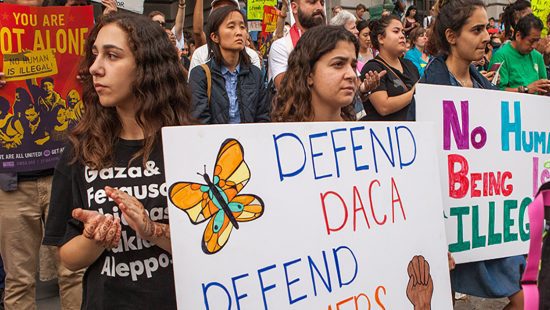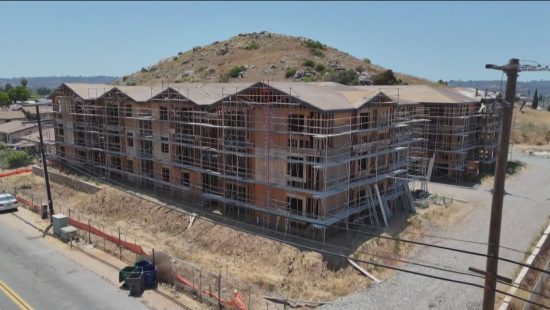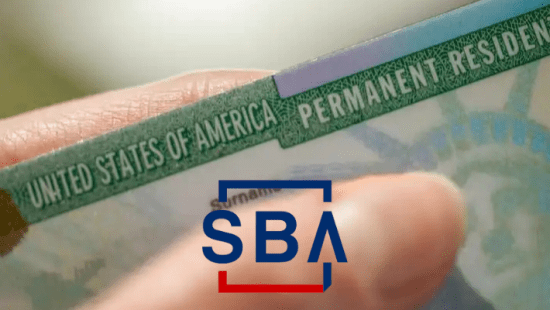Experts warn a Republican bill could disproportionately harm low-income Latinas, despite claims it targets “freeloaders.
Millions of Americans depend on Medicaid — known as Medi-Cal in California — for essential health care. This includes low-income families, children, people with disabilities, and caregivers, many of whom are women and disproportionately Latino.
Right now, to qualify for Medi-Cal, applicants must show that they meet income guidelines. But a new proposal by Congressional Republicans would go further — requiring proof that recipients are working a minimum number of hours each month, or else risk losing coverage. Health policy experts warn this shift could devastate vulnerable communities — especially middle-aged Latinas who have left the workforce to care for children or elderly family members.
Today, applying for Medi-Cal means showing documentation of your income. That can include:
- Pay stubs from the past 30–60 days
- Recent tax returns (Form 1040)
- Employer letters confirming wages and hours
- Bank statements or benefit letters (SSI, SSDI)
- Proof of California residency, like a utility bill or driver’s license
For Latino families, many of whom work in low-wage jobs or are self-employed in informal sectors like domestic work or street vending, gathering this documentation can already be a hurdle. Still, the current system allows flexibility for those who are not in traditional 9–5 jobs.
Importantly, you do not have to prove you are working — just that your income qualifies you for coverage.
Backed by former President Donald Trump, House Republicans have advanced a bill that would cut $715 billion from Medicaid over 10 years. A major change would be federal work requirements for adults ages 19–64.
Under this plan, Medi-Cal recipients in that age range would need to:
- Prove they are working at least 80 hours/month
- Or be in school, a job training program, or approved volunteer work
- Or prove, again and again, that they are exempt (due to disability or caregiving)
House Speaker Mike Johnson claims this is about restoring “the dignity of work.” But the data tells another story: the people most affected wouldn’t be young men, but Latinas in their 40s and 50s, caring for others while struggling to make ends meet.
Nationally, nearly 80% of the non-working adults on Medicaid are women, and many are caregivers who receive no paycheck for their labor. In California, where Latinos make up over half the Medi-Cal population, the impact would be especially severe.
Here’s what the data shows:
- 64% of adult Medicaid recipients already work
- 12% are unpaid caregivers — mostly women, often Latinas
- 7% are students
- 10% have chronic illnesses or disabilities
- Just 8% are not working — and the vast majority of them are women over 40 with no income and limited job options
“These women are not freeloaders. Many have cared for children, elders, or disabled family members for years,” said Alison Barkoff, a health policy professor. “They are the invisible workforce — and many are Latinas.”
Republicans argue that the bill includes exemptions for caregivers and people with disabilities. But state-level experiments show that these exemptions are difficult to maintain, and red tape causes thousands to lose coverage — even if they still qualify.
- In Arkansas, over 18,000 people lost Medicaid due to missed paperwork
- In Georgia, a new work rule cost millions but enrolled fewer people than expected
- Experts say red tape disproportionately affects people with limited English proficiency, low literacy, or no internet — challenges common in Latino communities
“This isn’t about getting people to work,” said Gelila Selassie of Justice in Aging. “It’s about making the system so confusing that eligible people fall through the cracks.”
In many Latino households, caregiving responsibilities fall to mothers, aunts, or grandmothers — many of whom never return to formal employment. According to the UCLA Latino Policy and Politics Institute, Latinas are among the least likely to have employer-based health insurance, and among the most likely to rely on Medi-Cal.
If this bill passes, thousands of these women could be forced to choose between health care and caregiving — or face losing coverage altogether.
| Requirement Type | Current Medi-Cal Rules | Proposed Republican Changes |
| Eligibility Basis | Financial need (income-based) | Work status (80 hrs/month) |
| Documents Needed | Pay stubs, tax returns, benefit letters | Employer forms, work logs, exemption proofs |
| Non-Workers | Qualify as caregivers or disabled | Must repeatedly prove exemption |
| Risk of Losing Coverage | Low with proper documentation | High due to red tape and bureaucracy |
What You Can Do
- Check your Medi-Cal eligibility at Covered California or local county offices
- Call your representative and voice support or opposition to the proposed changes
- Spread the word to Latino caregivers, older adults, and low-income families who could be affected
In Latino culture, caregiving is often seen as a moral and family duty. But this proposal threatens to punish that value, stripping health care from those who provide care — not because they don’t work, but because their work is unpaid and unrecognized.
If passed, this bill won’t just hurt “able-bodied freeloaders.” It could tear away a lifeline from the abuelitas, tías, and madres holding our families and communities together.








